George Floyd protests: are journalists being targeted by police at US riots?
Members of media attacked by law enforcement officers in at least 50 separate incidents
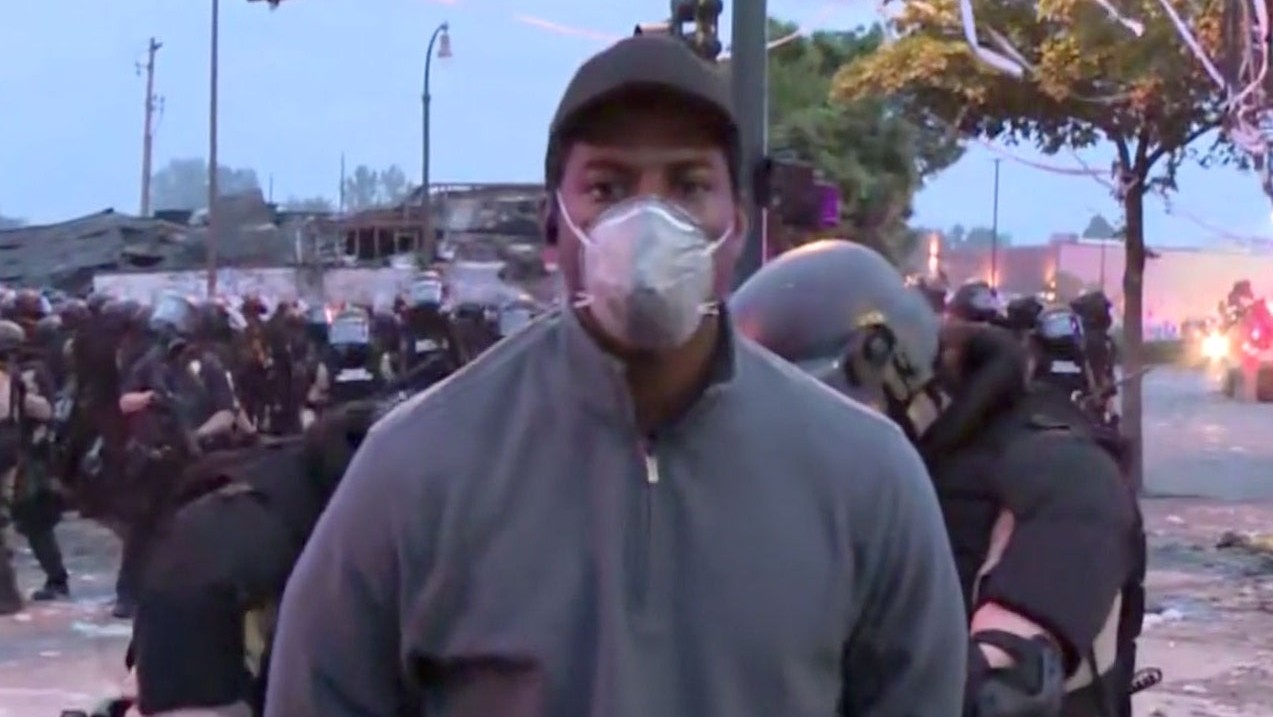
A free daily email with the biggest news stories of the day – and the best features from TheWeek.com
You are now subscribed
Your newsletter sign-up was successful
US police have been accused of repeatedly targeting journalists reporting at demonstrations across the US over the killing of African-American George Floyd.
The most high-profile incidents include the arrest of a CNN crew led by reporter Omar Jimenez while broadcasting live on air in Minneapolis on 29 May - four days after Floyd’s death at the hands of a police officer was caught on camera in the Minnesota city.
Dozens of other journalists have also been harassed or assaulted by police in other US cities, with some reporters apparently “swept up in indiscriminate efforts by authorities to disperse crowds”, says The Washington Post. “But in a number of incidents, journalists were injured, harassed or arrested even after identifying themselves as reporters.”
The Week
Escape your echo chamber. Get the facts behind the news, plus analysis from multiple perspectives.

Sign up for The Week's Free Newsletters
From our morning news briefing to a weekly Good News Newsletter, get the best of The Week delivered directly to your inbox.
From our morning news briefing to a weekly Good News Newsletter, get the best of The Week delivered directly to your inbox.
Indeed, members of the media have been attacked by law enforcement officers in at least 50 separate incidents since the protests began, according to investigative journalism website Bellingcat.
“In these examples, journalists have been shot with rubber bullets, targeted with stun grenades, tear gassed, physically attacked, pepper sprayed and arrested,” says the website.
Other sources claim the number of incidents is far higher, with the US Press Freedom Tracker tweeting that “we’re now investigating over **100** press freedom violations at the many #GeorgeFloyd protests around the country”.
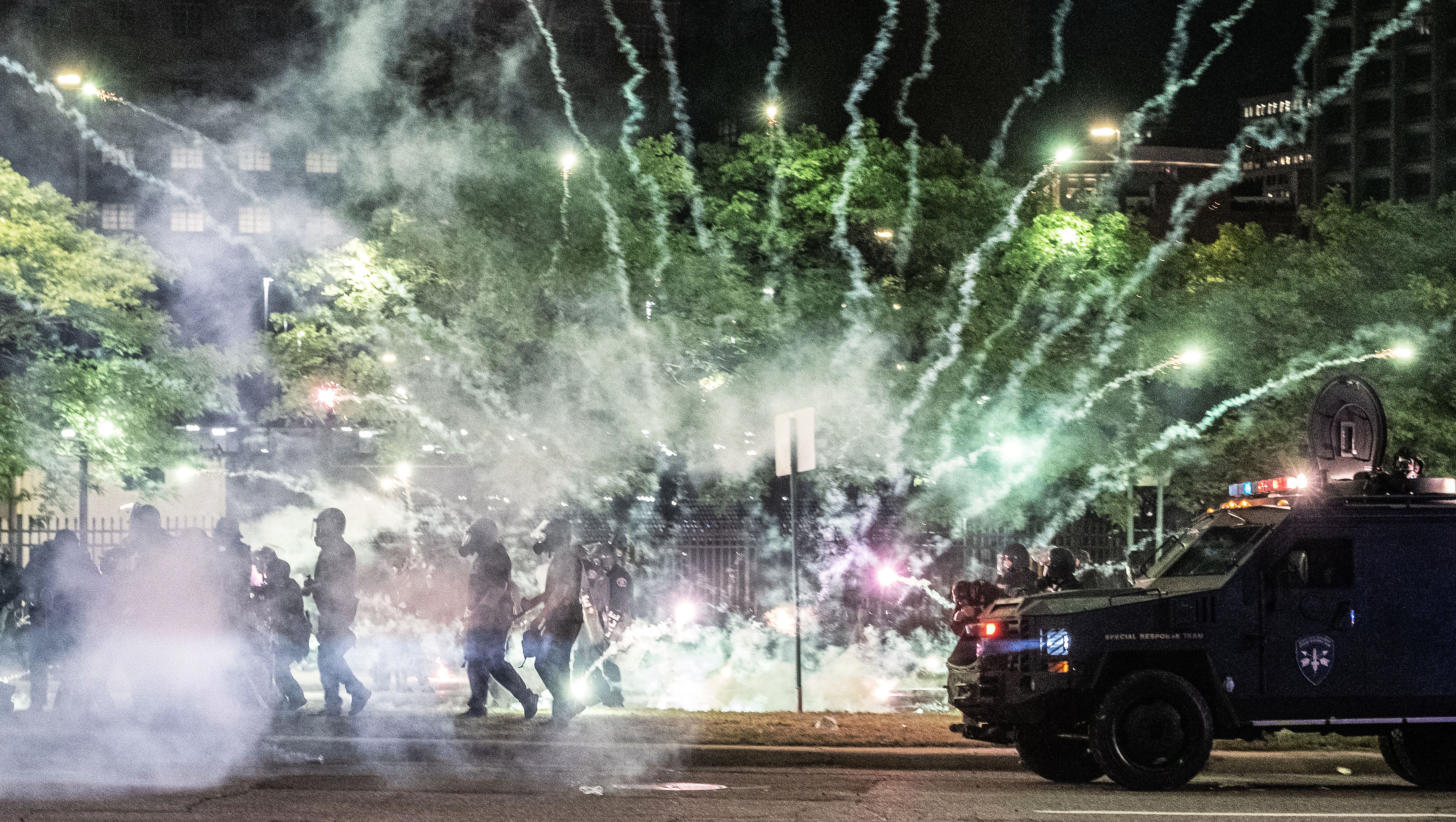
Are journalists being deliberately targeted?
A free daily email with the biggest news stories of the day – and the best features from TheWeek.com
Whether the attacks and arrests are intentional or simply part of a vigorous crackdown on protesters remains unclear.
According to The New York Times, some people in the media think the violence by police is a by-product of Donald Trump’s attacks on the press throughout his presidency.
“Many reporters, photographers and press advocates said the treatment of journalists by police officers in recent days reflected an erosion of trust in the news media that has seeped into law enforcement under President Trump, who has deemed critical coverage of his administration ‘fake news’ and has frequently labelled some news organisations and journalists with variants of the phrase ‘enemies of the people’,” the paper reports.
The Poynter Institute for Media Studies agrees, arguing that “attacks on media covering the protests are simply following the president’s rhetoric”.
–––––––––––––––––––––––––––––––For a round-up of the most important stories from around the world - and a concise, refreshing and balanced take on the week’s news agenda - try The Week magazine. Start your trial subscription today–––––––––––––––––––––––––––––––
And the impact?
Regardless of the intent behind such incidents, “they have the effect of impeding the news - hampering the public’s ability to see and judge the behaviour of officials who are accountable to them”, says The Independent.
“Journalists are there as representatives of the public, and if law enforcement is attacking them, they can’t do their job, and that hurts everybody,” Sarah Matthews, a staff attorney for the Reporters Committee for Freedom of the Press, told The New York Times.

What happens next?
In an open letter to police, media groups including the Society of Professional Journalists, Reporters Without Borders and the National Press Club have called on law enforcement officers to end violence against journalists.
“You must persuade your colleagues, commanders and chiefs, and the mayors and governors who direct them, to halt the deliberate and devastating targeting of journalists in the field,” the letter says.
Attacks such as the ones witnessed over the past seven days will keep happening unless the public is made aware of them, according to Francine Prose, former president of the Pen America writers’ association.
“We can’t stop paying attention and, more important, calling attention to the importance of the free press and to the horrors of racism,” Prose says in an article for The Guardian. “The mistake was always to think that it can’t happen here, because it can, it has and – unless we remain aware and vocal – it most certainly will again.”
-
 The ‘ravenous’ demand for Cornish minerals
The ‘ravenous’ demand for Cornish mineralsUnder the Radar Growing need for critical minerals to power tech has intensified ‘appetite’ for lithium, which could be a ‘huge boon’ for local economy
-
 Why are election experts taking Trump’s midterm threats seriously?
Why are election experts taking Trump’s midterm threats seriously?IN THE SPOTLIGHT As the president muses about polling place deployments and a centralized electoral system aimed at one-party control, lawmakers are taking this administration at its word
-
 ‘Restaurateurs have become millionaires’
‘Restaurateurs have become millionaires’Instant Opinion Opinion, comment and editorials of the day
-
 Jeff Bezos: cutting the legs off The Washington Post
Jeff Bezos: cutting the legs off The Washington PostIn the Spotlight A stalwart of American journalism is a shadow of itself after swingeing cuts by its billionaire owner
-
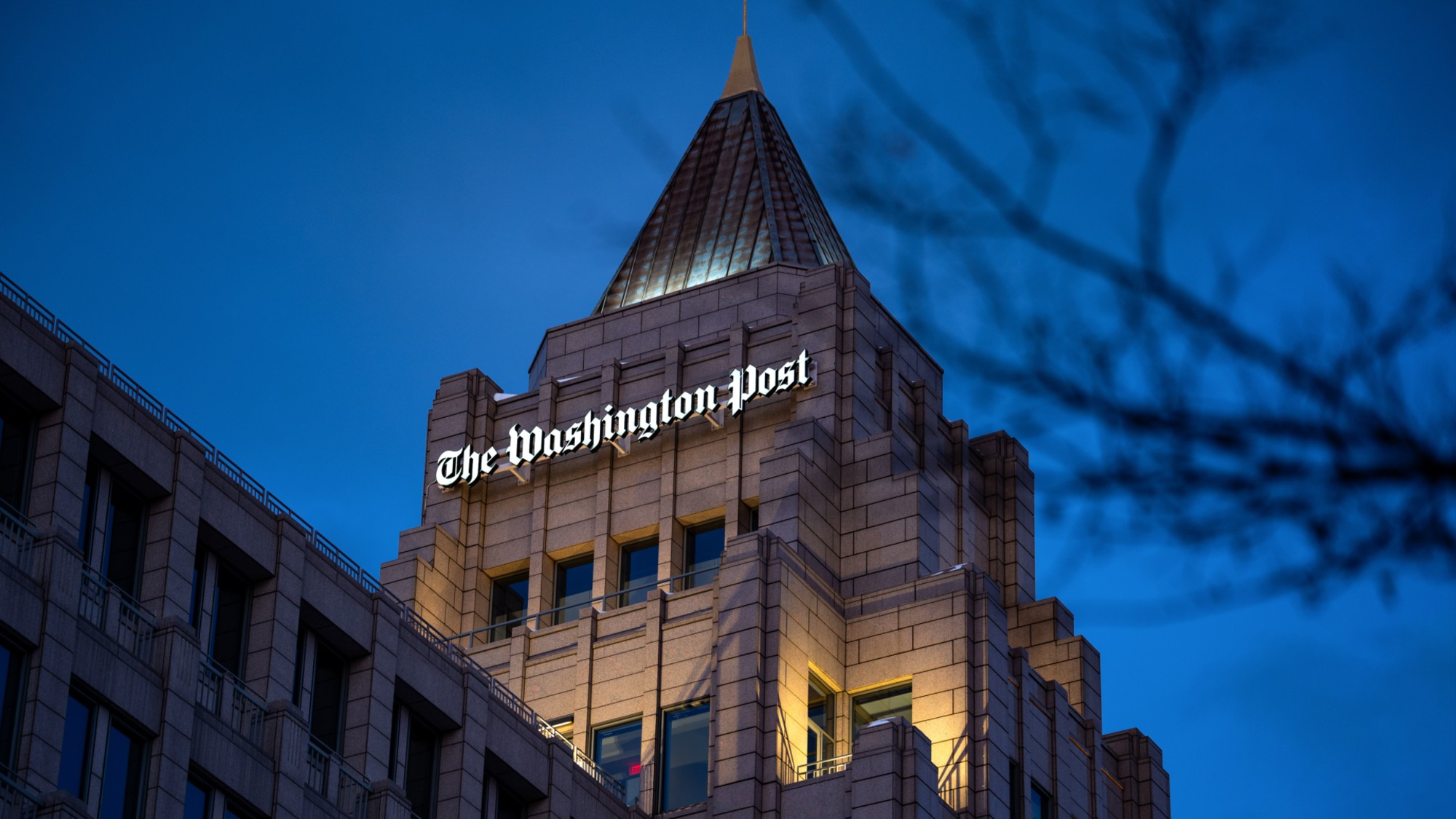 The Washington Post is reshaping its newsroom by laying off hundreds
The Washington Post is reshaping its newsroom by laying off hundredsIn the Spotlight More than 300 journalists were reportedly let go
-
 Why X could face UK ban over Grok deepfake nudes
Why X could face UK ban over Grok deepfake nudesThe Explainer Ofcom is investigating whether Elon Musk’s AI chatbot breached Online Safety Act
-
 Paramount fights Netflix for Warner as Trump hovers
Paramount fights Netflix for Warner as Trump hoversSpeed Read Paramount Skydance is seeking to undo Netflix’s purchase of Warner Bros. Discovery
-
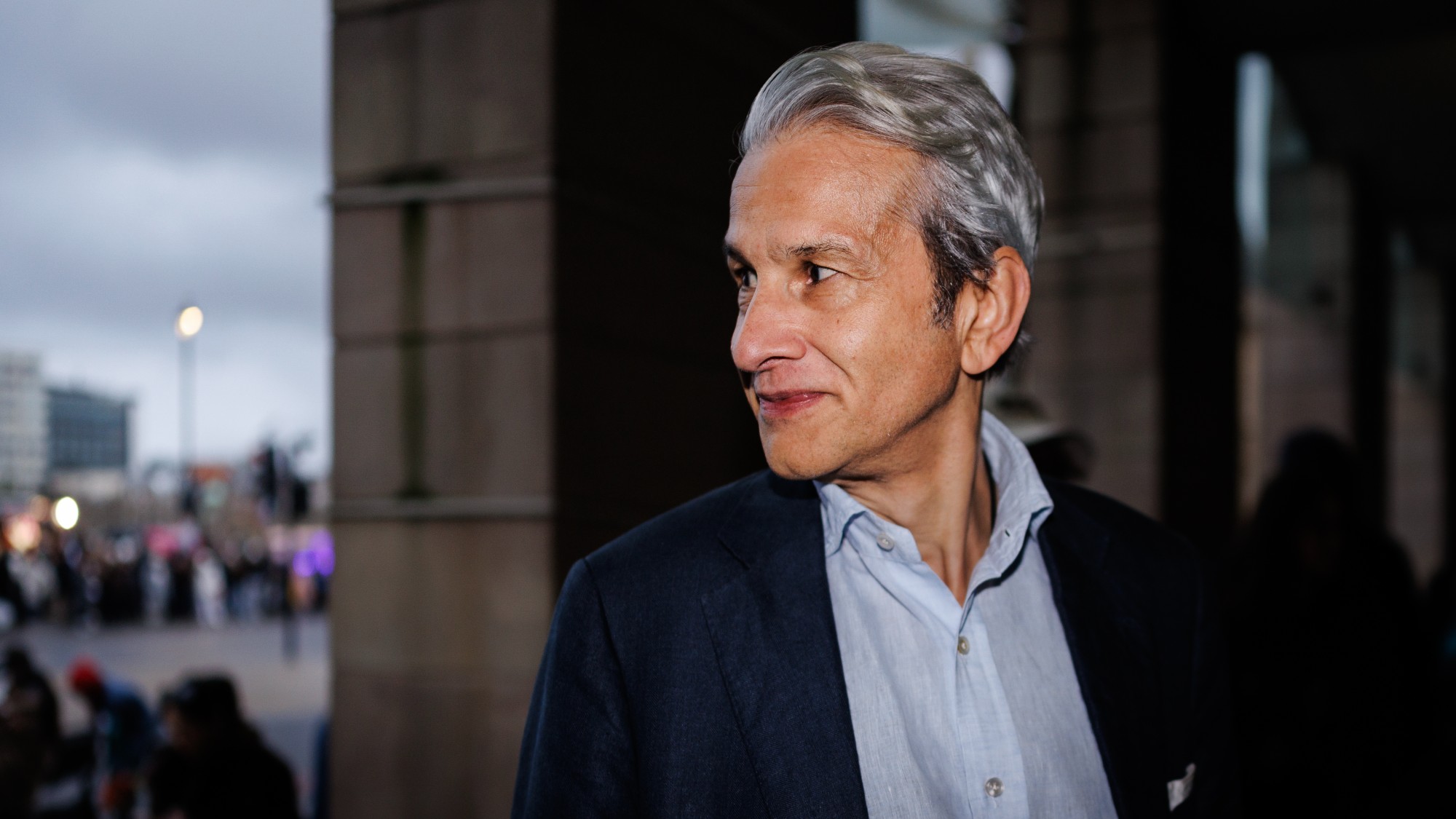 Can the BBC weather the impartiality storm?
Can the BBC weather the impartiality storm?Today's Big Question MPs’ questions failed to land any ‘killer blows’ to quell the ‘seismic outrage’ faced by the BBC
-
 Why the Maga vibe shift spelled trouble for Teen Vogue
Why the Maga vibe shift spelled trouble for Teen VogueTalking Point As anti-feminist women’s magazines thrive, progressive titles are left out in the cold
-
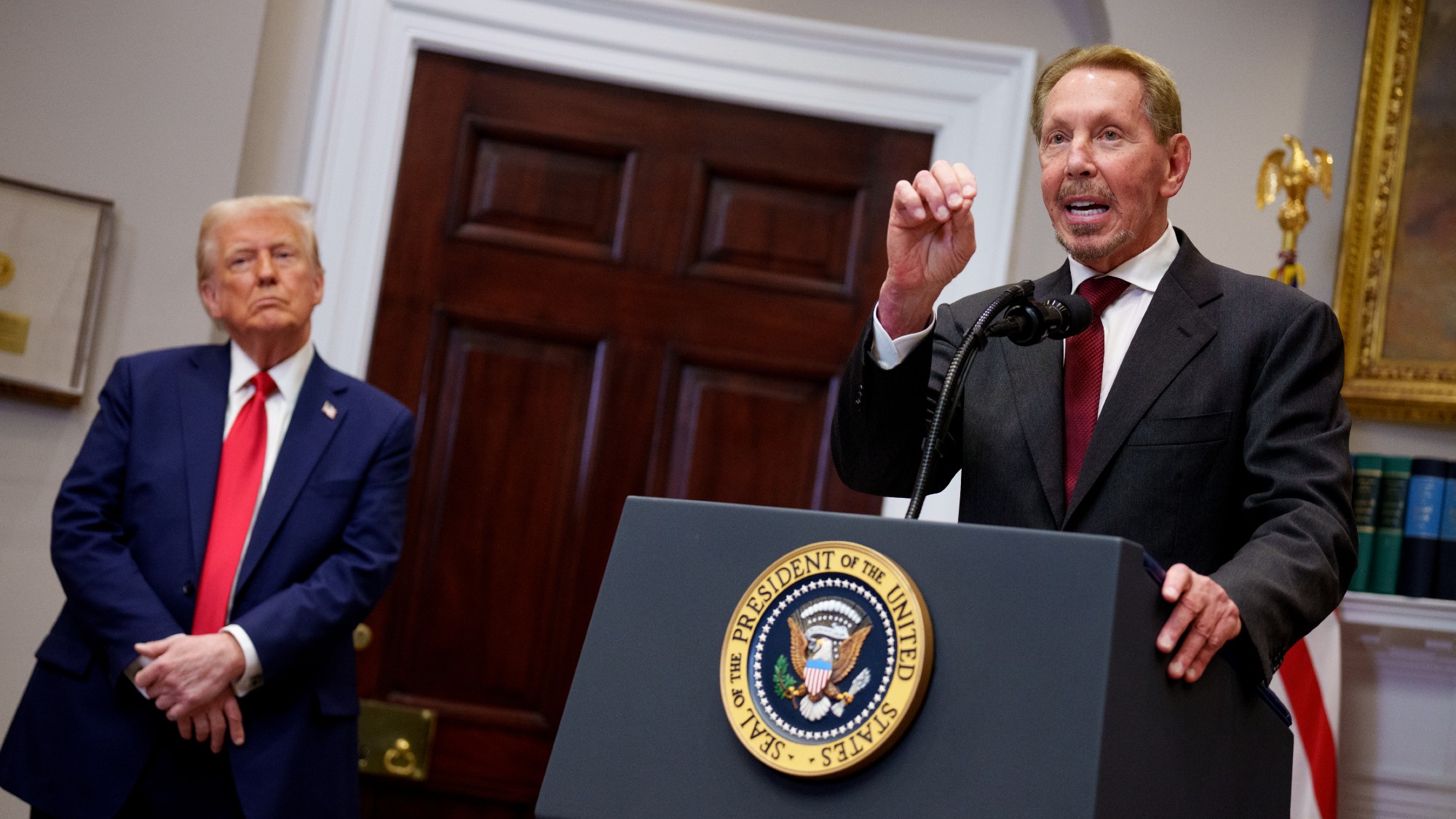 Larry Ellison: the billionaire’s burgeoning media empire
Larry Ellison: the billionaire’s burgeoning media empireIn the Spotlight Oracle founder’s takeover of traditional and new media companies labelled ‘dangerous for democracy’ by US press watchdog
-
 Bill Moyers: the journalist who was the face of PBS
Bill Moyers: the journalist who was the face of PBSFeature A legend in public broadcasting